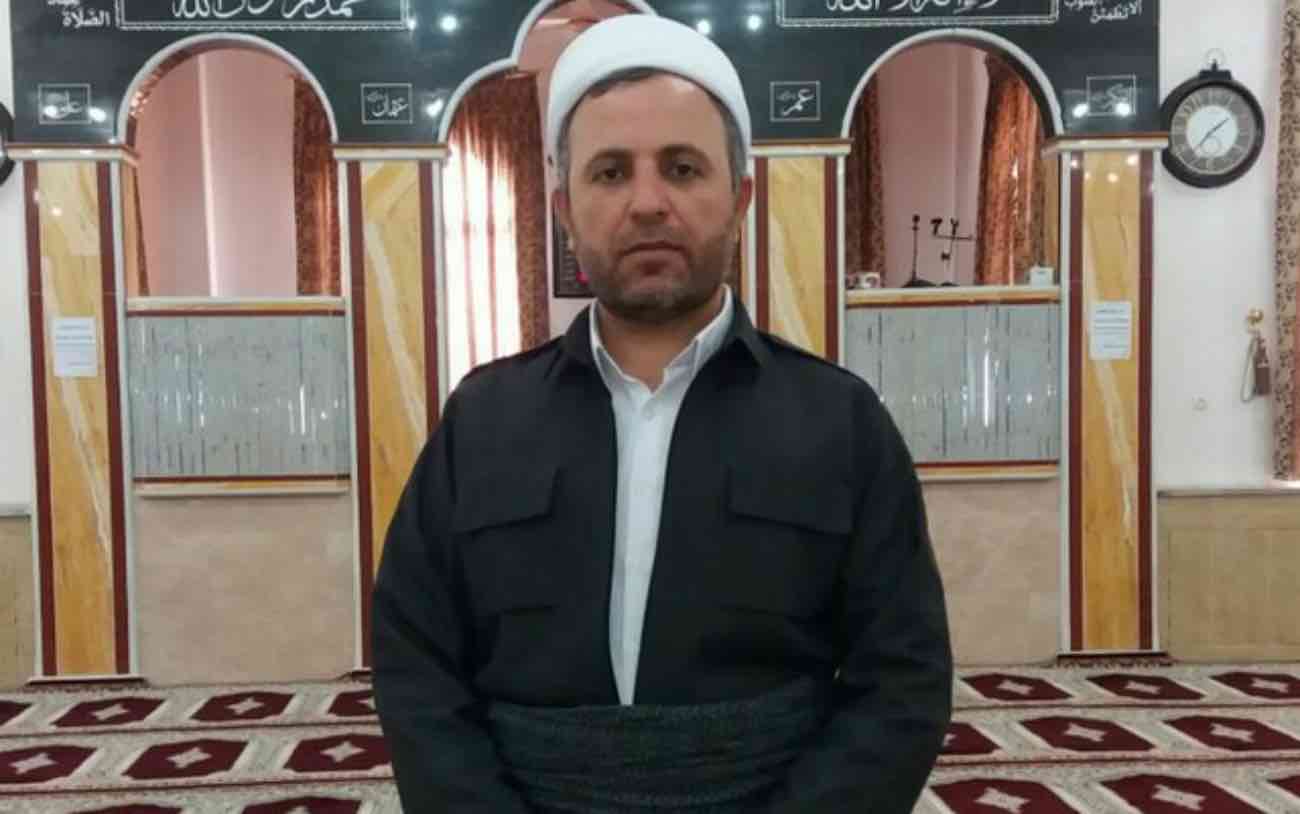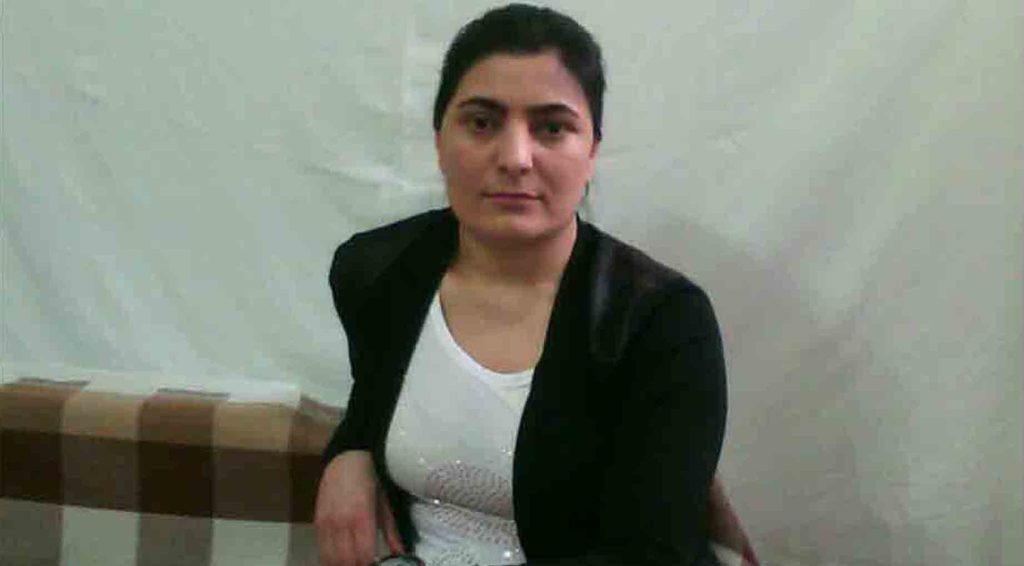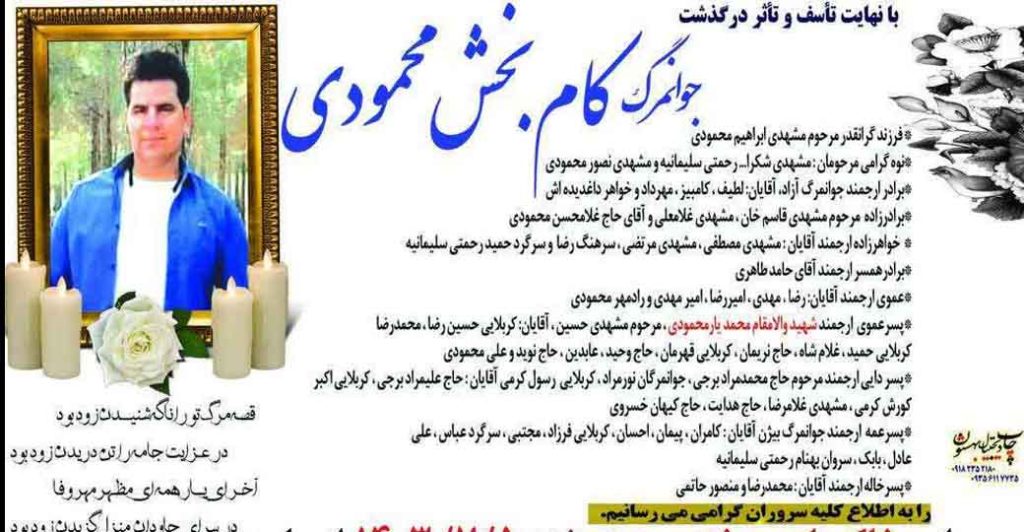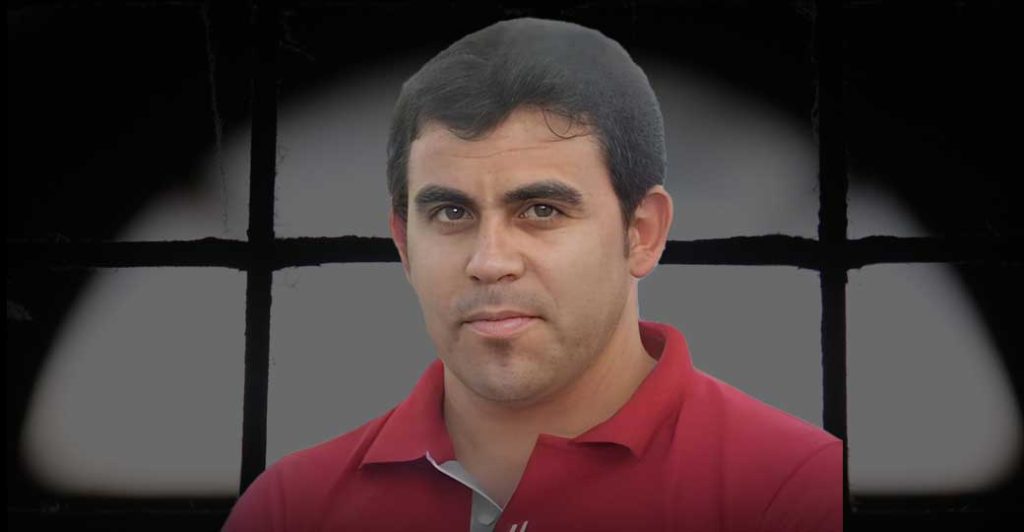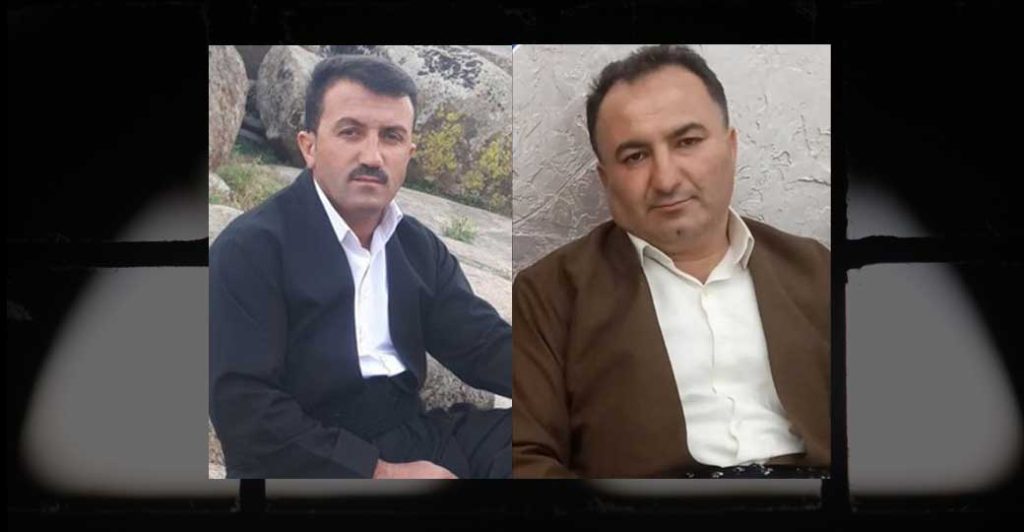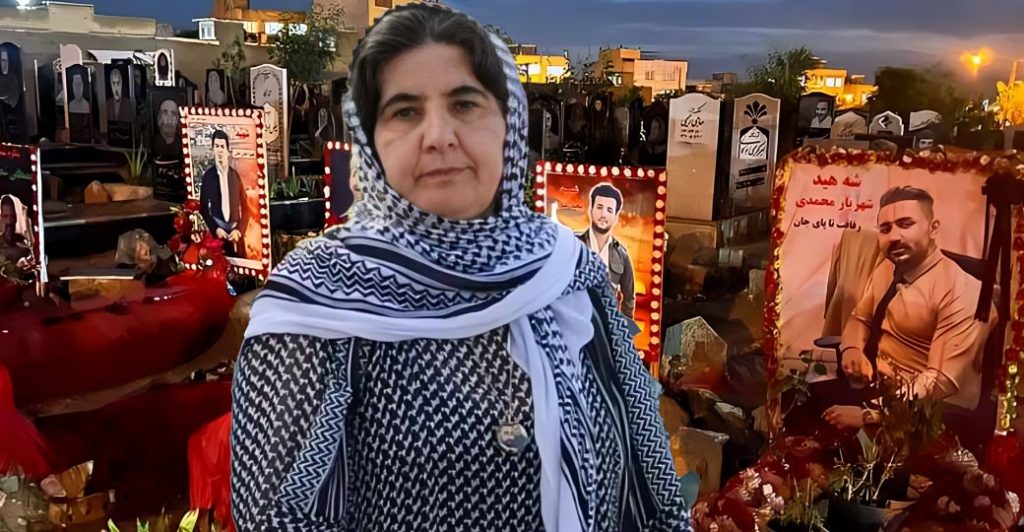Kurdish Sunni cleric Mohammad Khezrnezhad, who is serving a 25-year prison sentence for his involvement in the anti-government uprising of Women, Life, Freedom, has ended a 12-day hunger strike in protest at his treatment by the authorities, the Kurdistan Human Rights Network (KHRN) has learned.
Khezrnejad, who was sentenced to death in November 2023 by the Islamic Revolutionary Court of Orumiyeh, West Azerbaijan Province, saw his sentence commuted to 25 years in June 2024 following a judicial amnesty.
KHRN has learned that the cleric began his hunger strike on 11 September in protest at the manner of his arrest, his prolonged detention in the Ministry of Intelligence detention facility in Orumiyeh, the holding of his trial via video conference without the right to defend himself before the Islamic Revolutionary Court, and the failure of the authorities to review his case before the Special Clerical Court.
After submitting a letter to prison officials announcing the strike, Khezrnezhad was first transferred first to the Intelligence Organisation of the Islamic Revolutionary Guard Corps (IRGC) detention centre in Orumiyeh and then to the Ministry of Intelligence’s detention facility in the city.
During the hunger strike, Khezrnezhad was denied family visits and was only allowed one brief phone call with his family.
He ended the strike after prison officials promised to transfer him to the central prison of Sanandaj, where his family lives.
Background
Khezrnezhad was arrested at his family home in Bukan on 19 November 2022. Security forces forcibly entered the house, subjected him and other family members to violence, and detained his son, Yasser Khezrnezhad, for several days.
His arrest followed a critical speech he gave at a memorial ceremony at the Eftekhari Mosque in Bukan for Asaad Rahimi, one of the protesters killed during the anti-government uprising of Women Life Freedom in Bukan.
After the protests began, the Sunni Kurdish cleric published comments and articles on his Telegram channel expressing support for the protests and commemorating the protesters killed.
In the initial weeks of his detention, he was denied the right to contact or meet with his family and was subjected to severe physical and psychological torture for forced confessions during his 108 days of solitary confinement in the Ministry of Intelligence detention centre in Orumiyeh.
The intensity of the physical torture was such that even after his transfer to Orumiyeh Central Prison, its effects were visible on his body.
In November 2023, Khezrnezhad was sentenced to death and 16 years in prison by Branch Three of the Islamic Revolutionary Court of Orumiyeh, presided over by Reza Najafzadeh, on charges of “spreading corruption on earth” (efsad-e fel-arz), “harming the territorial integrity or independence of the country”, and “propaganda against the state”.
His trial, conducted over four brief sessions, the last being in November 2023, was held via video conference without the right to legal representation. The judge, solely relying on reports from the Ministry of Intelligence, including recorded videos of his coerced confessions under torture during detention, issued the verdict without hearing the explanations or defences of the accused.
After the Supreme Court confirmed the sentence, his family and lawyers submitted a request for clemency to the Judiciary’s Pardon and Clemency Commission.
In June 2024, the official website of the judiciary and the head of the judiciary of West Azerbaijan Province announced a “pardon with a degree of reduction”, i.e. a reduction of the death sentence to imprisonment, but did not give further details of the sentence.
The political prisoner now faces a cumulative sentence of 41 years in prison. Under Article 134 of the Islamic Penal Code, which allows for the aggregation of sentences, the most severe sentence—25 years—will be enforceable.
Khezrnezhad holds a master’s degree in Arabic literature and has been mainly engaged in research and translation in the field of Islamic studies in recent years.
Over the past 20 years, he has been forced multiple times by security agencies to step down from his position as an imam at various mosques in the cities of Sanandaj and Bukan, as well as villages in these regions.

